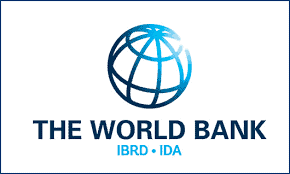The World Bank today approved a $295 million grant from the International Development Association (IDA)* to help Chad expand its access to energy.
The Chad Energy Access Scale Up Project (PAAET) aims to increase access to electricity and clean cooking solutions via expansion of the main power grid and mini-grids, standalone solar systems, deployment of improved stoves, and natural resource management. It will expand electricity access in the capital city of N’Djamena and in 12 secondary cities in which the national power company, Société Nationale d’Electricité (SNE), operates mini-grids, and provide access to electricity services in additional secondary cities and villages, including those located near refugee camps. Public and private investments will strengthen the country’s electricity generation, storage, and distribution capacity.
“The Bank’s support strategy for access to energy in Chad is based on a two-pronged approach: off-grid electrification led by the private sector to rapidly boost access and national grid-based electrification by SNE, which is strategically important,” said Clara de Sousa, Country Director for Burkina Faso, Chad, Mali, and Niger.
“With private sector participation, this project aims to increase electricity access from the current rate from about 6% to 30% by 2027 for approximately one million households,” added Rasit Pertev, World Bank Country Manager for Chad.
As a result of the PAAET, more than six million people will benefit from electricity services, including 400,000 refugees and about 740,000 people from host communities. The project will also provide access to electricity for approximately 850 medical centers and 700 schools, mainly in rural areas, including 150 medical centers and 200 schools for refugees and host communities.
Despite significant fossil fuel resources and abundant sunshine, Chad has one of the lowest electricity access rates in the world at 6.4%, compared to the average of 48% in Sub-Saharan Africa. In July 2020, the government implemented a National Emergency Electricity Plan (NEEP) with a view to achieving a 53% access rate by 2030. The PAAET, the Cameroon-Chad Power Interconnection Project (CCPIP) currently being implemented, and the World Bank-financed energy sector reforms are expected to help Chad achieve the objectives of the NEEP.
*Established in 1960, the World Bank’s International Development Association (IDA) helps the world’s poorest countries by providing grants and low- or zero-interest loans for programs that boost economic growth, reduce poverty, and improve living conditions. IDA is one of the largest sources of assistance for the 1.5 billion people who live in the world’s 75 poorest countries, 39 of which are in Africa. Annual IDA commitments have averaged about $18 billion over the past three years, with about 54% going to Africa.

